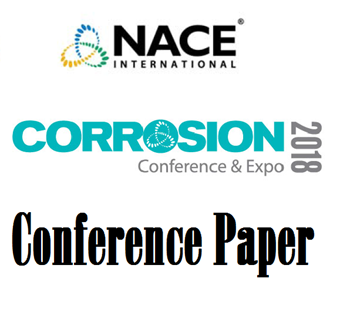Search
51316-7259-Validation of Internal Corrosion Threat Guidelines for Dry Natural Gas Pipelines
Also Purchased
51314-3887-Enhancement of Internal Corrosion Threat Guidelines for Dry Natural Gas Pipelines
Product Number:
51314-3887-SG
ISBN:
3887 2014 CP
Publication Date:
2014
$20.00
51314-3834-Pipeline Integrity Management Through Internal Corrosion Monitoring
Product Number:
51314-3834-SG
ISBN:
3834 2014 CP
Publication Date:
2014
$0.00
51318-11300-Predicted and Actual Dig Outcome of Dry Gas Internal Corrosion Direct Assessment of Unpiggable Pipelines
Product Number:
51318-11300-SG
Publication Date:
2018
$20.00




